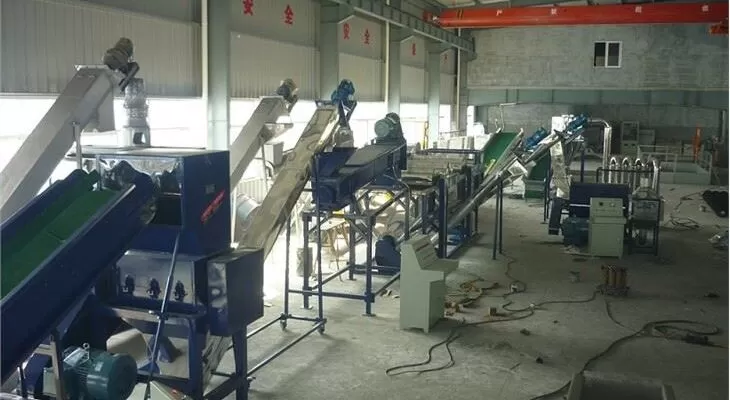Plastic waste management is a critical issue for environmental protection globally. Thailand, as a key economy in Southeast Asia, faces its own challenges with plastic pollution. Recently, Thailand has adopted a new model for plastic waste management, achieving significant success. These new approaches not only help Thailand reduce plastic pollution but also provide valuable lessons for other countries. So, what exactly is Thailand’s new model for plastic waste management?

Thailand has effectively addressed plastic waste through a series of innovative measures. These include promoting plastic recycling, advocating for biodegradable plastics, and enhancing public education. Through these efforts, Thailand has successfully reduced the environmental impact of plastic waste and improved resource utilization efficiency.
The new model for plastic waste management is more than just a technological upgrade; it’s a systematic transformation. Let’s delve into the specifics of these new approaches.
How is Thailand Promoting Plastic Recycling?
Thailand has implemented various measures to promote plastic recycling. Firstly, the government incentivizes businesses and individuals to participate in plastic recycling through policies and economic incentives. For instance, tax breaks and subsidies are provided to recycling companies, boosting their enthusiasm for recycling. Additionally, Thailand has established a comprehensive plastic recycling network, ensuring efficient collection and processing of plastic waste.
Through these measures, Thailand’s plastic recycling rate has significantly increased, with many previously discarded plastics being reused, contributing to environmental protection.
How is Thailand Promoting Biodegradable Plastics?
Biodegradable plastics are a crucial solution to plastic pollution. Thailand has made significant strides in this area. The government has legislated to restrict the use of non-biodegradable plastics and promote the development and production of biodegradable plastics. For example, some supermarkets and food service companies in Thailand have started using biodegradable plastic bags and packaging materials, reducing the usage of non-biodegradable plastics.
Moreover, Thailand has increased investment in biodegradable plastic technology, fostering industry growth. These measures not only reduce plastic waste but also advance the green industry.
How is Thailand Enhancing Public Education?
Public education is key to solving plastic pollution. The Thai government has strengthened environmental education through various channels. For instance, environmental campaigns are conducted in schools and communities, raising public awareness of environmental protection. Additionally, the government utilizes media platforms to promote environmental knowledge and recycling techniques, educating more people about the hazards of plastic pollution and solutions.
These educational measures not only increase public awareness of environmental protection but also encourage widespread participation in plastic waste management.
What Are the Technological Innovations in Thailand’s Plastic Waste Management?
Thailand is also at the forefront of technological innovation. Thai research institutions and businesses collaborate to develop efficient plastic waste management technologies. For example, some companies use advanced machinery to convert plastic waste into renewable energy. Additionally, Thailand has developed various plastic degradation technologies, accelerating the natural degradation process of plastics.
These technological innovations not only improve the efficiency of plastic waste management but also reduce processing costs.
What Are the Results of Thailand’s New Plastic Waste Management Model?
Thanks to a series of measures, Thailand has achieved remarkable results in plastic waste management. According to relevant data, Thailand’s plastic recycling rate has significantly increased, and plastic pollution has been effectively controlled. Additionally, the use of biodegradable plastics in Thailand is steadily increasing, reducing the environmental impact of non-biodegradable plastics.
These achievements have not only improved Thailand’s environmental quality but also provided valuable lessons for other countries.
What Can Other Countries Learn from Thailand’s Plastic Waste Management Model?
Thailand’s success offers important lessons for other countries. Firstly, governments should play a guiding role by encouraging businesses and individuals to participate in plastic waste management through policies and economic measures. Secondly, technological innovation is key to improving efficiency and reducing costs; thus, countries should invest more in relevant technology development and application.
Additionally, public education is crucial. Raising public awareness and involvement in environmental protection can effectively advance plastic waste management efforts.
Conclusion
Thailand’s new model for plastic waste management provides valuable insights into addressing plastic pollution. Through policy guidance, technological innovation, and public education, Thailand has successfully reduced the environmental impact of plastic waste. We hope other countries can learn from these experiences and work together to protect our planet.
This is Thailand’s success story in plastic waste management. I hope this information has been helpful.
